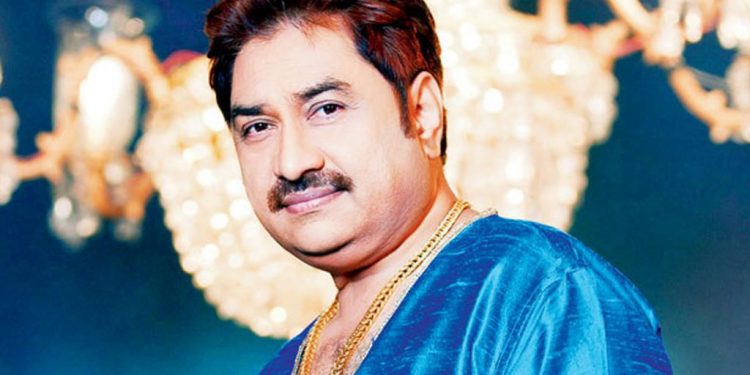Mumbai: Election time in Bengal is round the corner, and almost every party is looking for celebrity candidates, a trick that never fails.
Playback superstar of the nineties Kumar Sanu, who joined Bharatiya Janata Party (BJP) twice and left the party the final time after 2014, is amused when you ask him if he considers another shot at the game. Saying he has no plans to re-enter politics, Sanu reveals his agenda for joining politics earlier never got fulfilled.
“I don’t think a person like me can do anything in politics. So, I don’t have that intention at all,” he tells IANS.
Incidentally, playback rival of his heydays Babul Supriyo, who was always a lesser luminary in the world of music, did far better in public life. Supriyo not only won for the BJP, he was also a minister in the Cabinet for a while.
Sanu won’t get into comparisons with anyone. He says the only reason he has sworn off the idea is because he has no intention left to pursue the calling.
“The reason I joined politics didn’t get fulfilled. So, I stepped back. Now, I don’t have any intention of joining politics. Back then, I had opened a school for underprivileged kids and I had joined politics to boost that cause. I have three schools, one in Kolkata,” he informs, on what he claims was his real reason for giving public life a shot.
At 63 and at a time his son Jaan Kumar Sanu is knocking at the doors of Bollywood, Sanu’s musical career has understandably slowed down. Yet, for someone who started out facing charges of being just another Kishore Kumar clone, he has done well from himself.
Ever since “Aashiqui” in 1990, he redefined the love song in Bollywood and overnight zoomed to the top of the male playback heap, where he cemented his spot over the next decade. He still holds the Guinness world record for recording the maximum number of songs (28) in a single day, in 1993. Since 2001, March 31 has been observed as Kumar Sanu Day in the US.
His work across languages — Hindi, Marathi, Assamese, Bhojpuri, Gujarati, Telugu, Malayalam, Kannada, Tamil, Punjabi, Oriya, Chhattisgarhi, Urdu, Pali, Nepali, English and Bangla (in West Bengal as well as Bangladesh) — won him fans globally, and he has been a recipient of the Padma Shri in 2009.
Sanu can truly lay stake to the adage that he has “been there, done that”.
Looking back at the playback industry from where he stands today, he finds good as well as bad staring at him. “My industry is moving towards a new era. New sounds and music is coming and sometimes to maintain that, certain singers are given less priority. I feel that should not happen. All singers should be given the required priority,” he says.
Reflecting upon the music being currently made in the Indian music industry, he says: “We can’t say that all songs being made are bad. However, the quantity of good songs is less. I feel that we have to be careful with lyrics. We can’t go so bad that the song becomes unfit for children. The song can be a foot-tapping dance numbers but it should touch hearts. If this happens, the song will last long.”
Sanu was back in circulation recently when his voice was brought back for David Dhawan’s “Coolie No. 1”. He had sung the hit track “Tujhko mirchi lagi” in the original “Coolie No. 1” of 1995, and when Dhawan decided to film a remix of the song on Varun Dhawan and Sara Ali Khan in the 2020 remake of the film, he retained Sanu’s voice in the new version, too.
“That was definitely challenging because I had to give the same song a similar vibe,” Sanu recalls. “The music track given to me was new and I had to sing on that. It had its challenge but was not difficult. I really enjoyed it because I had to give the same energy, voice and fun factor to the new song. I am really happy that I could sing it and so happy that people liked it,” he says.
His hardcore fans didn’t agree with the remixing of his original track. Many opposed with the idea on social media. Sanu feels remixing is not a bad idea, if done properly.
“There is nothing wrong in remixing an iconic song because some youngsters don’t know about these track. When a remix comes, the newer generation gets to know about who the original singer was, and that is good for us,” he says.
However, he has a suggestion. “I feel when iconic songs get remade, their lyrics and compositions should not be changed. If only the arrangement is changed, then it is not a bad idea, and if the original singer sings it, even better. I have a positive outlook towards it,” he sums up the new-age fad.
IANS







































